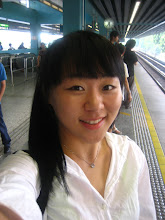There is a Korean proverb, "한국말은 끝까지 들어봐야 안다.", and it can be traslated into "You should listen to Korean to the very end of it.". It means, because we Korean speak topics or essential things at the end part of one's speech. That's why you should not make haste and pay attention to the very end of conversations, when you are talking to Korean (esp. in Korean!).
Of course it is not just Korean people who speak in indirect and circular way. As we learned in previous lecture, maybe oriental people tend to avoid straight and direct way of speaking, and I guess it is a lot influenced by asian traditional culture or idea. Because in Asian cultures, politeness and one's face has been considered to be very important thing in our lives, and it has a lot of things to do with way of speaking.
Everybody all around the world don't want to threaten others' face. Of course in Korea, it is so rude to speak or act straight forwardly to others, especially to strangers or elder people. That's one of the traditional concept in Asia which is related to the reason why Korea has been called "東方禮儀之國( ; Polite Nation in the East)".
Because we don't want to threaten others' face and also want to keep our face, Korean people speak indirectly and circularly regardless of their attention to face threatening. I mean, when people talk to each other, I think they don't need to pay attention intentionally not to threaten others' face, but it is more like something unconscious for Korean people who are born and grown in Korean politeness culture.
Based on the concept of politeness and face, I realized once again how much related they are, language and
culture.
October 12, 2009
October 4, 2009
Collectivism in Me
I was born in Korea and grown up there for 21 years.
As one of Asian countries, Korea is also familiar with the concept of collectivism, not individualism,
and it is well reflected in every part of our culture.
One of the most remarkable examples can be found in Korean language. When we speak in Korean, we use a lot of 'U-ri', which means our, than 'Nae', which means my. For example, when someone look at my family picture and ask me 'who is she?', pointing my mom, I would reply 'u-ri umma.(; our mother.)' , not 'nae umma(; my mother)'. Similarily, let's say that I brought my foreign friend to my school for the first time. When he or she asks me 'Where is this place?', I maybe reply 'u-ri hakkyo(; our school)', not 'nae hakkyo(; my school)'. Like this, there are a lot of expressions with U-ri in Korean, such as uri-dongnae(; our town), uri-nara(; our country), uri-gajok(; our family), uri-jib(; our house), and so on.
It can sound a little bit strange, and, I know that it is hard to understand for people who speak other languages. Besides, translating Korean expressions into English can never be perfect because the concepts in each languages are totally different from the bottom. That's why I would not and can not explain why we use 'U-ri' more than 'Nae', and I just want to tell people that it is as an example that shows collectivism in me and my country. Also, it can show how much related they are, I mean language and culture, and how language can affect one's perception and thoughts.
As one of Asian countries, Korea is also familiar with the concept of collectivism, not individualism,
and it is well reflected in every part of our culture.
One of the most remarkable examples can be found in Korean language. When we speak in Korean, we use a lot of 'U-ri', which means our, than 'Nae', which means my. For example, when someone look at my family picture and ask me 'who is she?', pointing my mom, I would reply 'u-ri umma.(; our mother.)' , not 'nae umma(; my mother)'. Similarily, let's say that I brought my foreign friend to my school for the first time. When he or she asks me 'Where is this place?', I maybe reply 'u-ri hakkyo(; our school)', not 'nae hakkyo(; my school)'. Like this, there are a lot of expressions with U-ri in Korean, such as uri-dongnae(; our town), uri-nara(; our country), uri-gajok(; our family), uri-jib(; our house), and so on.
It can sound a little bit strange, and, I know that it is hard to understand for people who speak other languages. Besides, translating Korean expressions into English can never be perfect because the concepts in each languages are totally different from the bottom. That's why I would not and can not explain why we use 'U-ri' more than 'Nae', and I just want to tell people that it is as an example that shows collectivism in me and my country. Also, it can show how much related they are, I mean language and culture, and how language can affect one's perception and thoughts.
Subscribe to:
Comments (Atom)
